
07 Aug Inside GE Appliances’s innovation lab that developed the viral nugget ice maker
Kevin Nolan doesn’t have the same worries that many CEOs do. While most executives are focused on the bottom line, with an ever-increasing appetite for escalating profits, his FirstBuild, an innovation hub for GE Appliances, is tasked to simply break even.
FirstBuild might not be a familiar name to many consumers, but its products increasingly are. The unit was responsible for the Opal Nugget Ice machine, which was first announced in 2015; the GE Mella, a Keurig-like device for growing mushrooms at home; and the Smart Indoor Smoker that turned plenty of heads earlier this year.
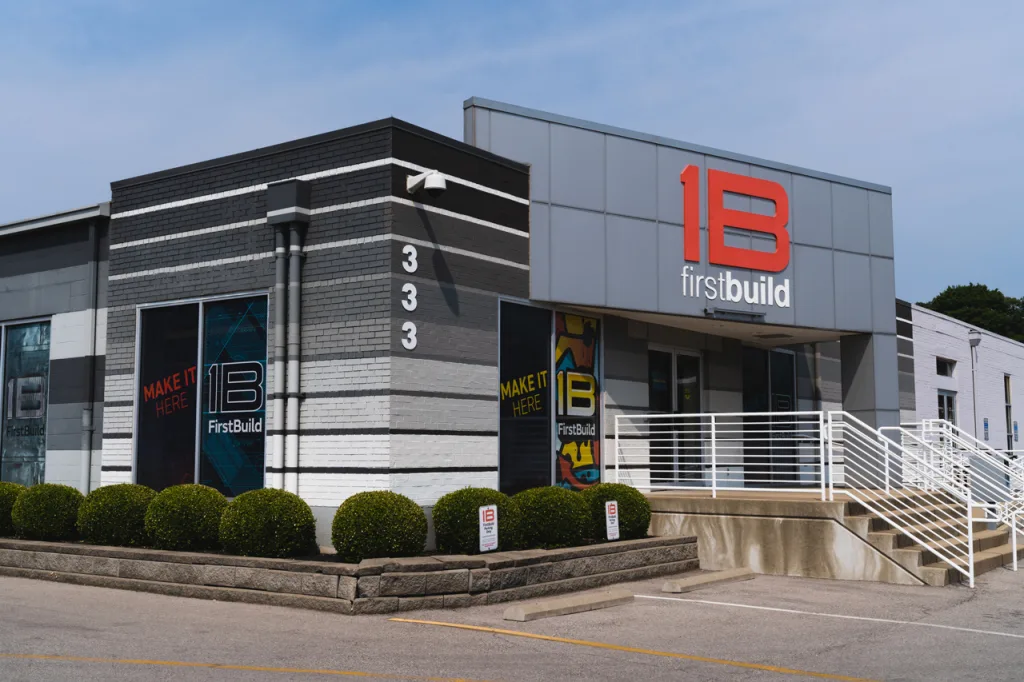
FirstBuild turns 10 in 2024—and Nolan gave Fast Company a peek inside the company’s design process. Over the past decade, the unit has developed over 104 products and features, 37 of which have become part of the GE Appliances portfolio. The company has raised more than $5.2 million in crowdfunding and built a community of over 245,000 “co-creators,” who offer feedback and even suggest products and features.
Nolan subscribes to the theory that corporations kill innovation, so when FirstBuild was created, it chose a location away from the GE Appliances campus. The unit also took a leap of faith, bringing consumers into a very early phase in development.
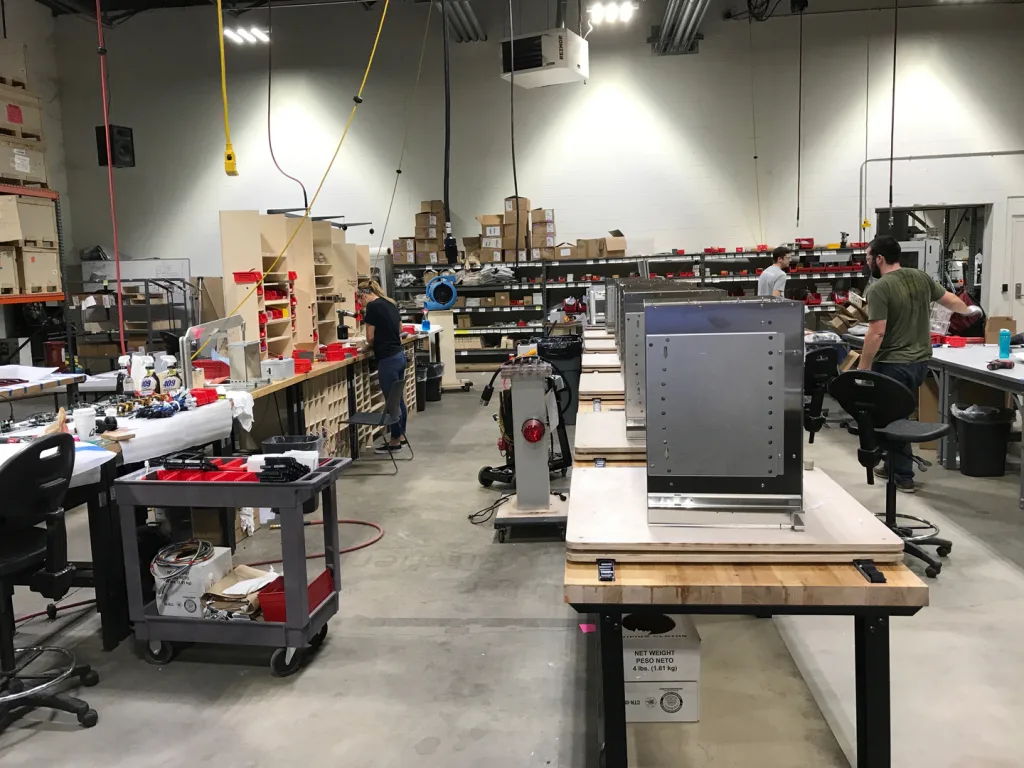
“Most companies want to keep all of their long-term innovation behind closed doors. We said, ‘What’s riskier: not knowing the customer . . . or the risk of the product leaking to a competitor?’” Nolan says the reward of getting the right product-market fit is worth the risk of someone potentially stealing an idea.
These days, FirstBuild aims to launch at least 12 new products or features per year, working with a community of makers and consumers to ensure there’s demand before anything gets too far along in the development process. As part of that, the company has opened its 35,000 square foot makerspace on the University of Louisville’s Belknap Campus to anyone who wants to use it for no charge, often asking those visitors their thoughts on prototypes and projects.
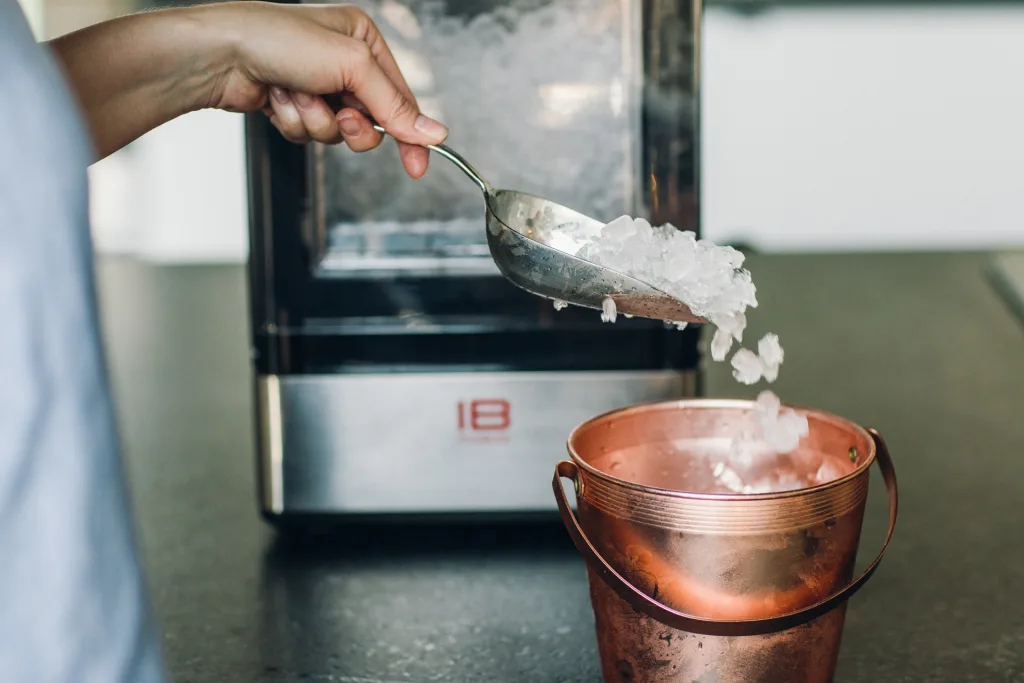
Bringing nugget ice home
FirstBuild had a hit right out of the gate. Early in the group’s history, Nolan noticed that some of the sales team would go out of its way to get drinks with nugget ice, and their passion for it was off the charts. That sparked the idea that would go on to become the Opal Nugget Ice machine.
“I never knew if it was a good idea or a bad idea,” says Nolan. “But these people had this passion that gave us the idea that ‘hey, maybe there’s something here.’”
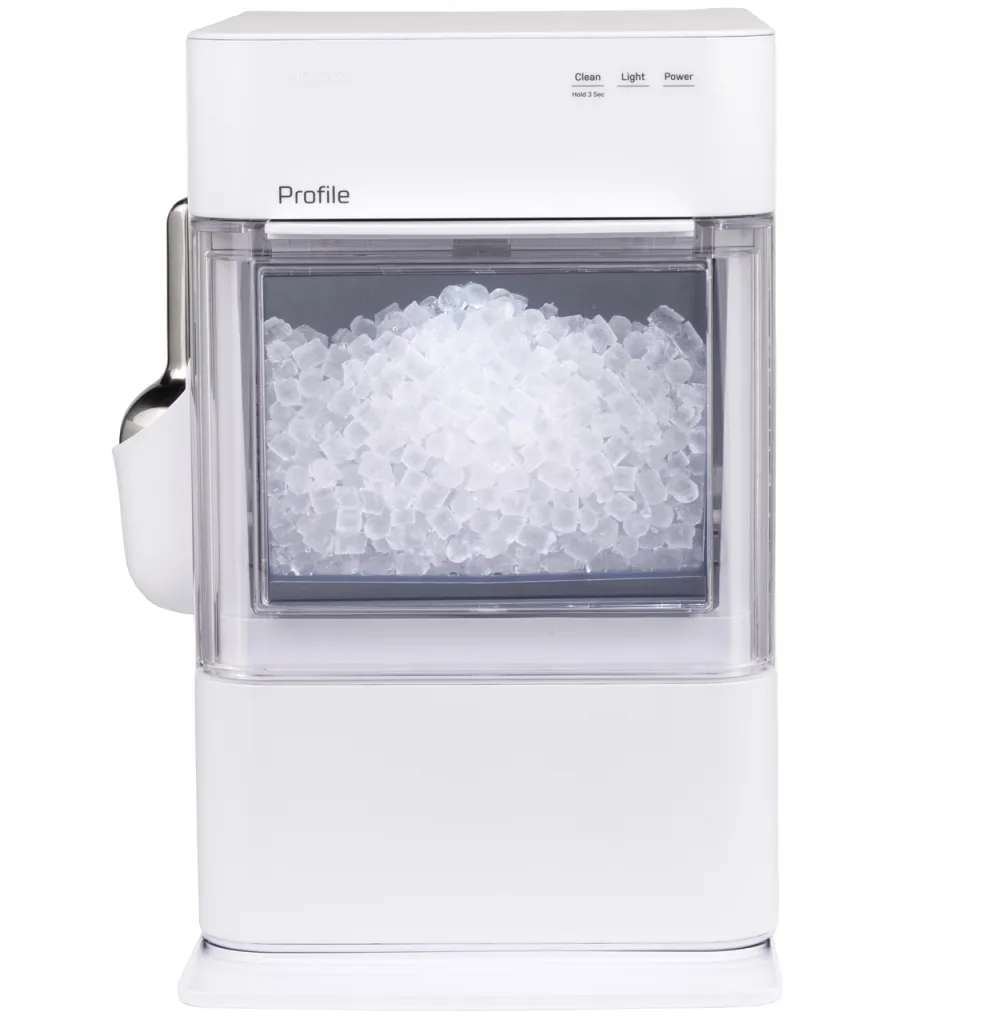
The company approached Kickstarter, which declined to work with it due to its affiliation with GE Appliances. IndieGoGo, however, welcomed FirstBuild with open arms.
It was a smart move. Nearly 6,500 backers pledged nearly $2.8 million to get the machine. What many didn’t know was that FirstBuild hadn’t even started on a prototype.
“We didn’t really know how we were going to do it, but we had faith in our engineering department,” Nolan says. “Corporate was going crazy saying, ‘You can’t sell it if we don’t have it!’ […] It gave us a lot of insight. Typically, a company will spend all this capital and you don’t know what the market is. Any innovation, fundamentally, if it’s truly innovative, it’s impossible to understand the market.”
Opal also taught FirstBuild that it didn’t need to invent new things, but rather it should focus on finding previously unidentified needs. Nugget ice was nothing new nine years ago. It had been a staple at hospitals and some fast-food restaurants for decades before the device hit IndieGoGo. What FirstBuild did was find a way that could bring it to people’s homes.
It certainly found an audience. TikTok can’t get enough of the Opal–and knock-offs have hit the market in the past couple of years as well.
The company would later roll out a second-generation Opal device, but Nolan says don’t expect FirstBuild to work on a third. Opal has, for lack of a better term, become too big of a product for FirstBuild to focus on. (GE Appliances oversees the device now.) While the nugget ice maker can be evolved and refined, there’s not a lot left to innovate with it.
“Once it gets to scale, FirstBuild is not interested in it anymore,” says Nolan. “What was happening with Opal was they were getting too much money coming in—and that makes you lose your hunger.”
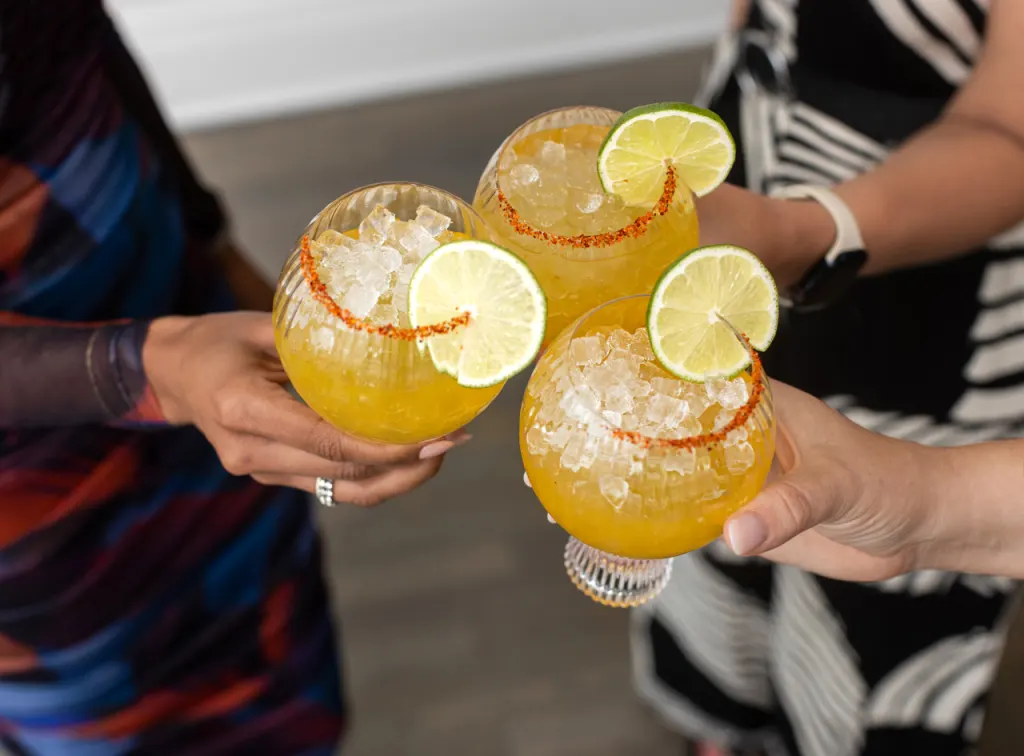
Profit vs creativity
That lean startup philosophy ties into FirstBuild’s mantra: innovation first. While some CEOs might consider it a luxury to not have to show a profit, Nolan says working without that corporate sword of Damocles over his head is not the luxury it might seem.
Staying lean requires the company to quickly gather feedback and to be willing to drop ideas if there is not immediately a market. That’s something traditional R&D departments don’t often do.
“It’s easy to work behind a closed wall and not hear your baby is ugly,” says Nolan. “We’ve figured out a way to break out of that.”
Part of the secret, he says, is keeping the accountants as far away from the creative team as possible.
“If finance is sitting there overseeing your innovation projects, you’ll never be innovative,” he says. “If it’s a known market, someone’s already got it. The beauty of FirstBuild is we’re free of all that. We don’t worry about market size. We don’t worry about payback. We only worry about whether people will love it.”
A traditional R&D department also wouldn’t open up its facility to the general public either. But FirstBuild invites makers in to either work on their own projects or collaborate with its in-house team. That microfactory let the company do small-batch prototypes, keeping costs down and whittling the turnaround time to market to roughly six months.
While not all creations make it to market, sometimes the core concepts behind them do—being incorporated into other GE Appliances products. And sometimes, they evolve into other products entirely.
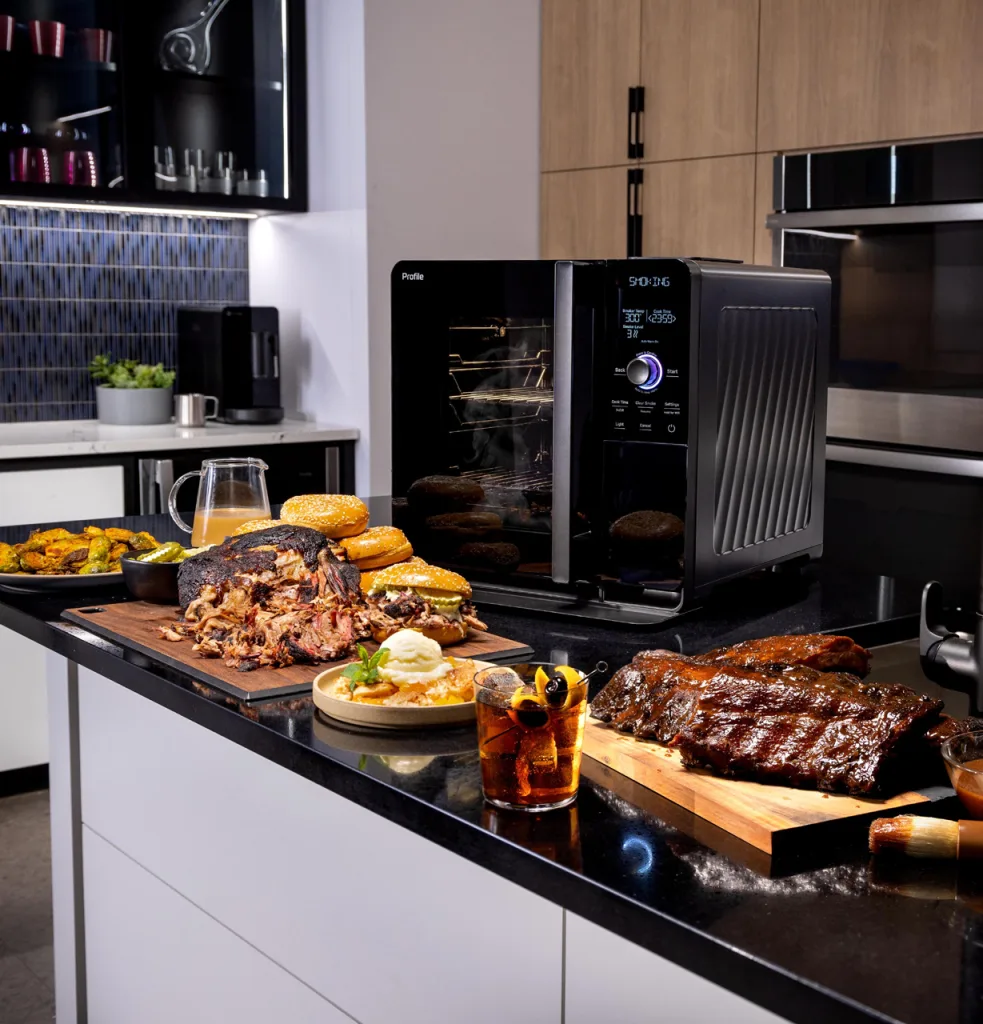
Countertop BBQ
That’s what happened with the Smart Indoor Smoker. The genesis of that product, which lets people barbecue ribs, brisket, and other meats in their kitchens without having to worry about clouding their house with smoke, started with a pizza maker.
The indoor pizza oven FirstBuild created is one of Nolan’s favorite products. It could reach temperatures of up to 1,400 degrees safely inside the home, he says, and created a way of cooking that hadn’t been done before. The oven fits flush in a 30-inch wide cabinet cutout, with touch LCD-controls and a brushed stainless steel exterior. Before its creation, home pizza makers either needed to use a traditional oven, which lacks the taste of brick oven pizza, or an outside grill/pizza oven.
Among the lessons engineers learned in the creation of that product was how to manage smoke and make it safe to use indoors.
One employee was a barbecue fanatic and came up with the idea of using that knowledge to create an indoor smoker. Nolan admits he wasn’t a fan of the idea, but the worker’s passion (which was quickly mirrored by others in the BBQ community) convinced him to move forward with the idea.
In January of this year, the indoor smoker, which has a filtration system built into the device, was one of the most talked about devices at CES and has gone on to earn raves from a wide range of critics, including Food & Wine, which called it “a smarter and easier way to practice the art of smoking.”
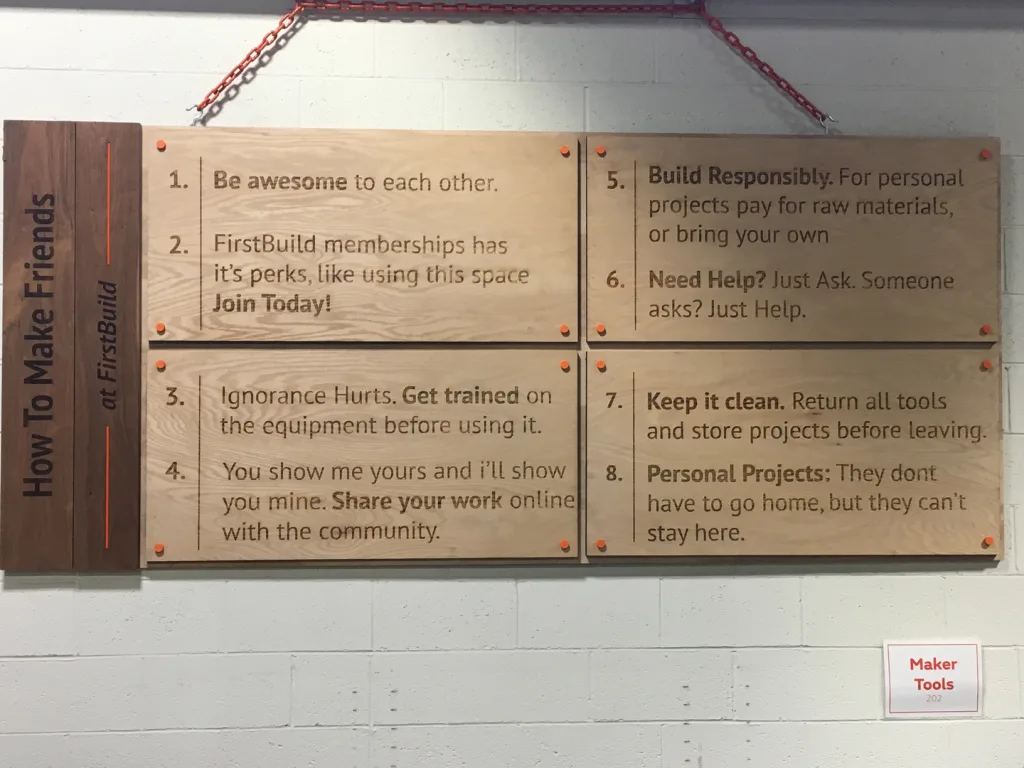
What’s next?
Life moves pretty fast at FirstBuild headquarters. The timeframe from when an idea is born and when the company begins to get feedback on it is often less than a day (“It’s very hard to spend a lot of money in a day,” says Nolan). If there’s obvious passion about it, it can move forward. If not, it generally dies a quick death.
So things that are in the pipeline today could easily be jettisoned before ever coming to market. But as of late July, among the things the team (which ranges from 10 to 25) was working on included a new take on a home knife sharpener and a better way to make sourdough bread. One employee had an idea for a pulled candy device, but that was spiked as it was deemed too dangerous.
And every Thursday, FirstBuild gathers to throw out even more ideas, with an emphasis on markets that have a passionate base of potential buyers.
“Don’t know the product, know the passion first,” he says.
Source: Fast Company




Sorry, the comment form is closed at this time.